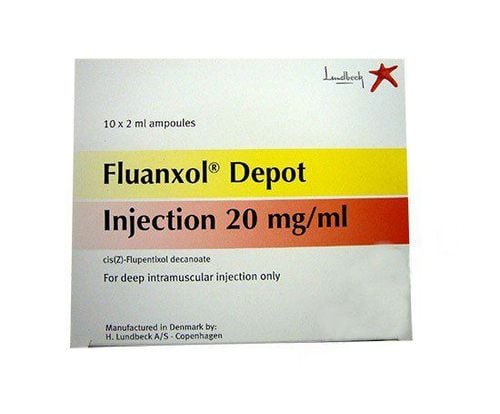This is an automatically translated article.
Adult Attention Deficit Hyperactivity Disorder (ADHD) is a disorder that includes a combination of attention problems, hyperactivity, and impulsive behavior. The disease causes many consequences such as reduced work performance, poor study and low self-esteem.1. What is Attention Deficit Hyperactivity Disorder (ADHD)?
Adult attention deficit/hyperactivity disorder (ADHD) is a mental health disorder that includes a combination of attention problems, hyperactivity, and impulsive behavior. ADHD can lead to unstable relationships, poor work or school performance, low self-esteem, and other problems.Although it is called ADHD, its symptoms begin in childhood and continue into adulthood. In some cases, ADHD is not diagnosed until adulthood. Symptoms of ADHD in adults may not be as obvious as symptoms of ADHD in children. In adults, the hyperactivity may decrease, but the person still faces impulsivity, restlessness, and difficulty paying attention.
Treatment for adult ADHD is similar to treatment for childhood ADHD. Treatment for adult ADHD includes medication, psychological counseling (psychotherapy), and treatment for any mental health conditions that co-occur with ADHD.
Trắc nghiệm: Bận rộn có ảnh hưởng đến sức khỏe của bạn không?
Cuộc sống hiện đại khiến chúng ta vì quá bận rộn mà quên chăm sóc sức khỏe cho chính mình. Ai cũng biết rằng lịch trình làm việc cả ngày có thể khiến bạn kiệt sức, nhưng cụ thể bận rộn ảnh hưởng thế nào tới sức khỏe? Hãy cùng làm thử bài trắc nghiệm dưới đây.
2. Symptoms of ADHD
The symptoms of some people with ADHD decrease with age, while others continue to carry the main symptoms of the disease, interfering with daily activities. In adults, the main symptoms of ADHD can include difficulty paying attention, impulsivity, and restlessness. Symptoms can range from mild to severe.Many adults with ADHD don't know they have it, they just know that for someone like them, daily chores can be quite a challenge. Adults with ADHD may find it difficult to focus and prioritize work, leading to missed deadlines and forgetting meetings or plans. The patient's lack of control, manifests in some situations such as impatience when queuing or driving, leading to outbursts of anger.
Symptoms of adult attention deficit hyperactivity disorder may include:
Impulsivity Inability to adhere to and prioritize problems Poor time management Trouble concentrating one task Trouble being assigned multiple tasks at once Restless, overactive, Poor planning organization Low tolerance for frustration Frequent mood swings Trouble completing successfully Work Short-tempered Frequent stress Symptoms of ADHD are similar to those of an anxiety or mental disorder. Many people with ADHD also have comorbid conditions such as depression and anxiety, making the condition more difficult to diagnose. ADHD is only diagnosed when symptoms are severe enough to cause problems that affect quality of life. If any of the symptoms listed above consistently interfere with your quality of life, see your doctor for a diagnosis of ADHD.

3. Causes of ADHD
The exact cause of attention deficit hyperactivity disorder is unknown, research efforts continue. Factors that may increase the risk of ADHD include:Genetics: ADHD runs in families and studies have shown genes to be a factor. Habitat: Certain environmental factors can also increase risk, such as early childhood lead exposure. Problems during development: Problems with the central nervous system at critical times are also factors that increase the risk of the disease.
4. Risk factors for disease
Your risk of ADHD may be increased if you:Have a close relative such as a parent or sibling with ADHD or another mental health disorder. Mom smoked, drank alcohol or used drugs during pregnancy As a child, you lived in a toxic environment, such as exposure to lead, which is found mainly in paint and pipes in older buildings . Being born prematurely

5. Complications of ADHD
Attention deficit hyperactivity disorder has many negative effects on quality of life:Poor academic or work performance Unemployment Low income Financial problems Trouble with legal problems Abuse alcohol and drugs Frequent car accidents or other accidents Unstable relationships Poor mental and physical health Having psychological problems such as depression or anxiety Poor self-image in the eyes People around Want to commit suicide
6. Health problems as a result of ADHD
While ADHD doesn't directly cause psychological and other problems, other disorders that often co-occur with ADHD make treatment more difficult. Includes:Mental Disorders: Many adults with ADHD also have depression, bipolar disorder, or another mental disorder. Although mental problems are not caused by ADHD, repeated feelings of failure and frustration caused by ADHD can worsen depression. Anxiety Disorders: Anxiety disorders occur quite often in adults with ADHD. It can cause excessive anxiety, stress, and other symptoms. Anxiety can be made worse by symptoms caused by ADHD. Other Mental Disorders: Adults with ADHD are at increased risk for other mental disorders, such as personality disorders, intermittent explosive disorder, and substance use disorders. Learning Disability: Adults with ADHD may score lower on academic tests for their age, intelligence, and education level. Learning-related problems can include problems with learning and communication.

7. Diagnosis of ADHD
The signs and symptoms of ADHD in adults can be difficult to spot. However, initial symptoms usually appear before age 12 and continue into adulthood. There is no single test that can confirm the diagnosis. Diagnosis includes:Physical exam : Physical exam to help rule out other possible causes of similar symptoms. Information gathering: You will be asked about any current health problems, your medical history, your family and history of symptoms. ADHD Rating Scales or Psychological Tests: Helps collect and evaluate information about your symptoms Some medical conditions or treatments can cause similar signs and symptoms similar to ADHD. Examples include:
Mental health disorders : Mental health disorders such as depression, anxiety, behavioral disorders, learning disorders, language disorders or other mental disorders Medical problems that can affect thinking or behavior: Problems such as developmental disorders, seizure disorders, thyroid problems, sleep disorders, brain injury, or low blood sugar (low blood sugar) Medicines and drugs : Abuse of alcohol or other drugs and certain drugs
8. Treatment of ADHD
Standard treatments for adult ADHD typically include medication, education, skills training, and psychological counseling. The combination of these treatments is often highly effective, especially in controlling many of the symptoms of ADHD.8.1 Medication Your doctor will advise you on the benefits and risks of medications. Stimulant drugs: Products include methylphenidate or amphetamine, which are often the most commonly prescribed medications for ADHD. Stimulants appear to increase and balance levels of brain chemicals called neurotransmitters. Other medications: Other medications used to treat ADHD include non-stimulant antioxidants and certain antidepressants such as bupropion. Atomoxetine and antidepressants work more slowly than stimulants, but they can be a good choice if you can't take stimulants because of health problems or stimulants cause serious side effects. The right medication and dosage is different from person to person, so it can take time to find the right medication for you. Tell your doctor about any side effects.

Psychotherapy can help you:
Improve time management and organization skills Learn how to reduce impulsive behavior Develop better problem-solving skills Deal with setbacks past school, work, or social situations Improve self-esteem Learn how to improve relationships with family, coworkers, and friends Develop strategies for anger management Types of psychotherapy Popular ones for ADHD include:
Cognitive behavioral therapy: This type of structured counseling teaches specific skills for managing your behavior and changing negative thought patterns into positive ones. It can help you cope with life challenges, such as school, work or relationship problems, and help with other mental health conditions, such as depression or anxiety. substance abuse. Marriage counseling and family therapy: This type of therapy can help loved ones deal with the stress of living with someone with ADHD and learn what they can do to help. Such counseling can improve communication and problem-solving skills. 8.3 Focus on treating problems related to social relationships You, like many people with ADHD, can be unpredictable and forget appointments, miss deadlines, and make decisions. impulsive or irrational decisions. These behaviors can undermine the trust of colleagues, friends, or partners in you.
Therapy focuses on these issues and ways to monitor your behavior. So classes can improve communication and develop conflict resolution and problem solving skills. Couples therapy and classes in which family members learn more about ADHD can dramatically improve your relationships.
Please dial HOTLINE for more information or register for an appointment HERE. Download MyVinmec app to make appointments faster and to manage your bookings easily.
References: Mayoclinic.org and Ncbi.nlm.nih.gov












